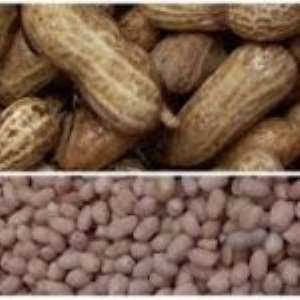
Doctors in Italy believe they may have found the secret to boosting male fertility. A handful of nuts.
In 2014, experts at the Azienda Ospedaliera Citta della Salute e della Scienza di Torino, a hospital in Turin, were conducting a study of 100 men which would attempt to prove the theory that consuming as little as seven nuts a day (almonds, walnuts, peanuts and hazelnuts) could have a significant effect on the quality of sperm.
Admittedly, the theory has been around for some time. In 2012, a research team at the University of California published the results of a study which showed that men who consumed 75g of walnuts each day experienced a marked improvement in sperm vitality, motility and morphology.
Their conclusion was that there is a direct link between an increase in the consumption of polyunsaturated fatty acids (which exist at high levels in nuts) and an improvement in sperm quality among healthy men eating a western diet.
Like walnuts, almonds are rich with arginine, an amino acid that has been shown to increase sperm production. Peanuts meanwhile contain high levels of zinc, which is associated with an increase in sperm count and motility.
Up to a fifth of young men have a low sperm count, defined as fewer than 20 million sperm per millilitre of semen, and the problem is on the increase. In 1992, a groundbreaking Danish study found that the number of sperms in each millilitre of semen has halved since the mid 20th century, while abnormal sperm is on the rise too. Factors may include diet, lifestyle, a greater exposure to oestrogen and chemicals in the environment.
But if the solution is as simple as consuming a handful of nuts, sales of Snickers bars could soon be soaring.
Quick Energy Boost
A 1/2-cup of boiled peanuts has 286 calories, with 12 grams of protein, no cholesterol and 2 grams of natural sugar. If you have a long wait between lunch and dinner, boiled peanuts can make a nutritious snack that keeps you energized, feeds your brain and muscles and helps to hold you over until your next meal. They also have 8 grams of fiber, helping you to feel satisfied.
Vitamin E and B Vitamins
Boiled peanuts, a rich source of the antioxidant vitamin E, provide one-fourth of your recommended daily intake in a 1/2-cup serving. They also have a wealth of B-complex vitamins, which are crucial for the growth and development of your muscles and organs. B vitamins help your body form red blood cells and folic acid, or folate, which can help prevent some birth defects. Each 1/2-cup serving of boiled peanuts has one-fifth of your daily requirement for thiamine and one-sixth of your folate intake. It gives you 10 to 20 percent of your daily requirement for vitamin B-6 and niacin.
Minerals for Bones, Teeth, Nerves and Muscles
A 1/2-cup serving of boiled peanuts provides 30 percent of the magnesium you need each day and 25 percent of your daily requirement of phosphorus. Both of these minerals benefit your bones and teeth. Magnesium helps ensure proper nerve function and muscle contraction, while phosphorus helps your body convert food into energy. Boiled peanuts also contain one-fifth of your recommended daily intake of zinc, a mineral that has antioxidant properties and promotes wound healing.
Fats and Sodium
Although 1/2 cup of boiled peanuts has 20 grams of fat, less than 3 of those grams are saturated fat. The rest of the fat comes from monounsaturated and polyunsaturated fats. The Institute of Medicine recommends getting at least 12 grams of healthy fatty acids daily, and boiled peanuts provide 16 grams in a 1/2-cup serving. The sodium content of boiled peanuts is a drawback. A 1/2-cup serving has 676 milligrams of the mineral. The Institute of Medicine recommends taking in no more than 2,300 milligrams of sodium per day, so eating boiled peanuts along with other salty foods could cause you to exceed your limit.




 Lay KPMG audit report on SML-GRA contract before Parliament – Isaac Adongo tells...
Lay KPMG audit report on SML-GRA contract before Parliament – Isaac Adongo tells...
 Supervisor remanded for stabbing businessman with broken bottle and screwdriver
Supervisor remanded for stabbing businessman with broken bottle and screwdriver
 NDC watching EC and NPP closely on Returning Officer recruitment — Omane Boamah
NDC watching EC and NPP closely on Returning Officer recruitment — Omane Boamah
 Your decision to contest for president again is pathetic – Annoh-Dompreh blasts ...
Your decision to contest for president again is pathetic – Annoh-Dompreh blasts ...
 Election 2024: Security agencies ready to keep peace and secure the country — IG...
Election 2024: Security agencies ready to keep peace and secure the country — IG...
 People no longer place value in public basic schools; new uniforms, painting wil...
People no longer place value in public basic schools; new uniforms, painting wil...
 'Comedian' Paul Adom Otchere needs help – Sulemana Braimah
'Comedian' Paul Adom Otchere needs help – Sulemana Braimah
 Ejisu by-election: Only 33% of voters can be swayed by inducement — Global InfoA...
Ejisu by-election: Only 33% of voters can be swayed by inducement — Global InfoA...
 Minority will expose the beneficial owners of SML, recover funds paid to company...
Minority will expose the beneficial owners of SML, recover funds paid to company...
 Prof. Opoku-Agyemang has ‘decapitated’ the NPP’s strategies; don’t take them ser...
Prof. Opoku-Agyemang has ‘decapitated’ the NPP’s strategies; don’t take them ser...
